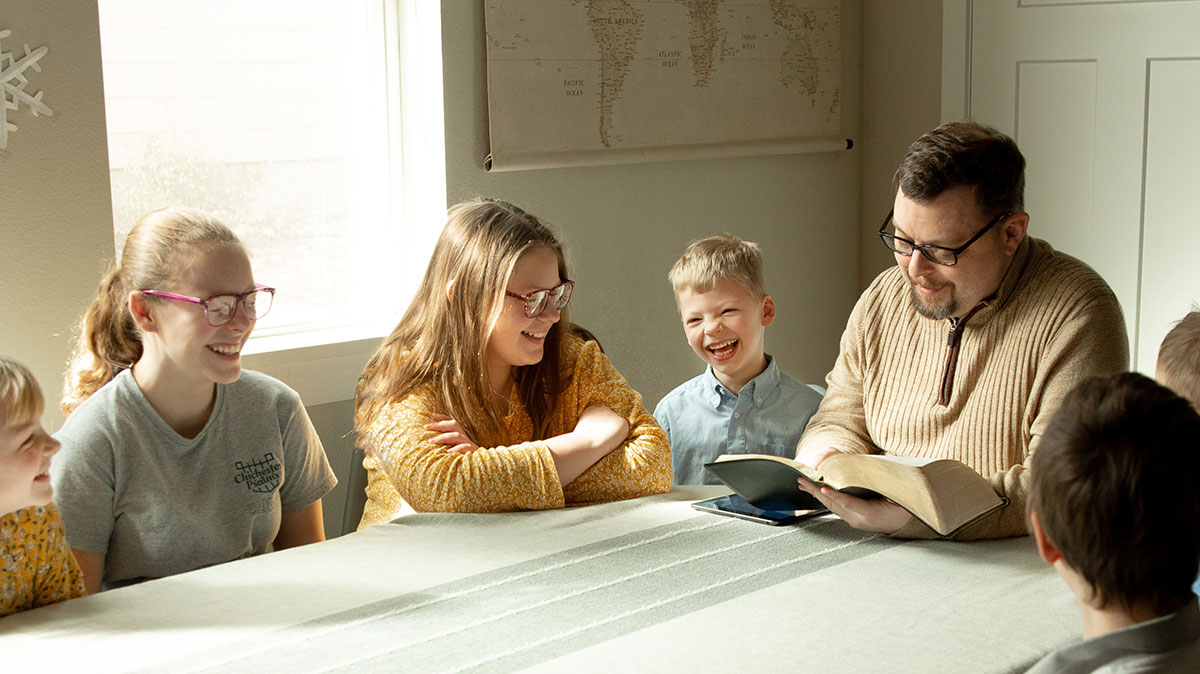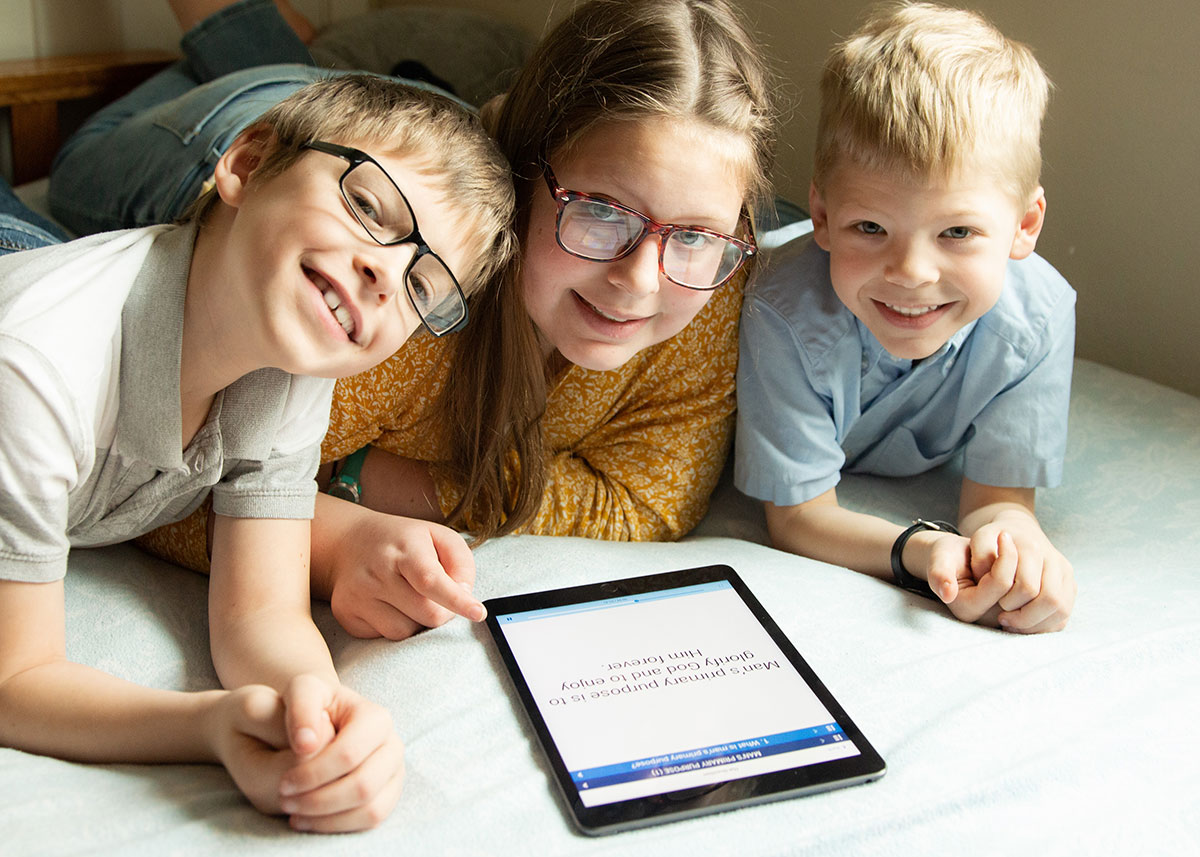As a Christian parent, I knew it was my responsibility to teach my children about God and His Word, and I wanted to do so; but I didn’t know how to do it. I had previously—clumsily—come up with a list of verses and topics I wanted to teach them, but it was haphazard at best.
Meanwhile, in 2010, God took me through a whirlwind of theological change; shifting me from a dispensational, Arminian, baptistic perspective to becoming thoroughly reformed and covenantal in my thinking.
I devoured countless books at the time, learning at a frantic pace. During that time, I came across Donald Van Dyken’s Rediscovering Catechism: The Art of Equipping Covenant Children. In it, the author described a means of equipping children in the doctrines of the Christian faith using historic catechisms. This wasn’t a new technique, but rather an old one; one that was tried and true, but had been largely forgotten by the church.
At the same, I stumbled across the Westminster Confession of Faith and Catechisms. Here was a complete, systematic way to teach my kids; created by godly theologians hundreds of years ago, better than anything I could ever come up with on my own, and handed to me on a platter! Why had no one ever told me about this?
My excitement spilled over into conversations with friends, and out of that came a new multi-generational Sunday School class in our church. Families came to learn doctrines via the Westminster Shorter Catechism, one question/answer per week.

I began to teach, initially making use of books by G.I. Williamson, Vos, Berkhof, and others. Later, I learned greatly from the likes of Calvin, Bavinck, Turretin and more modern authors like John Frame, John Murray and others.
My learning curve was only slightly ahead of what I was teaching. Many weeks, I would wrestle with the scriptures and the doctrines being espoused by the confession and catechism. Do I really believe this stuff? I can’t teach it if I don’t believe it! Other weeks, I’d be soaking up the new found theology like a sponge. In many ways, teaching this class felt like an informal seminary education.

Memorization was moving steadily along, but as we neared questions in the mid-30s, we struggled to keep up the pace. Reviewing old answers became more difficult. Looking ahead, I saw the upcoming long answers and thought to myself, “This is too much. The only way I can see us remembering all this is with music!”
As a musician, I had written several songs already. As part of my production company at the time, I also owned some recording equipment. When I embarked to set the catechism to music, there was no long-term plan—I just wanted new and better ways to help my children memorize the catechism.
We started with Question 42 and the Ten Commandments.
The difference was immediate and dramatic. All of a sudden, my kids could memorize very long passages with relative ease. The songs stuck in our heads all day long. What previously seemed impossible, now seemed easy and fun!
We continued forward, and I recorded at least one song per week. Sometimes I would write five songs in one sitting. Often I would come home for lunch or dinner, excitedly sharing songs with Hannah and the kids, who would smile, laugh, sing along, dance, and give me feedback.
By the end of 2015, our Sunday School class finished the entire catechism, and I had around 70 songs “in the can.” At this point, many other people expressed interest in using my songs for their own families, but the set was still incomplete. So I decided to go back to the beginning and finish up the first 41 songs.
Unfortunately, work pressures prevented me from completing the songs for several years. By early 2018, however, all 107 answers of the Westminster Shorter Catechism in Modern English were set to music (plus a few extras, for good measure).
Then came a time of intense upheaval for our family, including, but not limited to…
- Hearing loss in one ear
- A three-foot-long blood clot and four emergency surgeries in 2019
- Surgery in 2021 to remove a non-canerous brain tumor that went poorly, causing severe, life-threatening brain swell
- A rough recovery including three additional surgeries/procedures
- A move across the country
The Lord has been kind to our family through these trials, and the completion of the WSCinME in 2023 is a major flag post of His faithfulness to us.

WSCinME (pronounced w-s-c in me) is a family project, initially prepared for my own family and friends, but is now being offered to the world. I hope you all find it useful and enjoyable!
God Bless!
Scott and Hannah Spuler
(& Esther, Aletheia, Stephen, Josiah, Hosanna, and Tobias)

